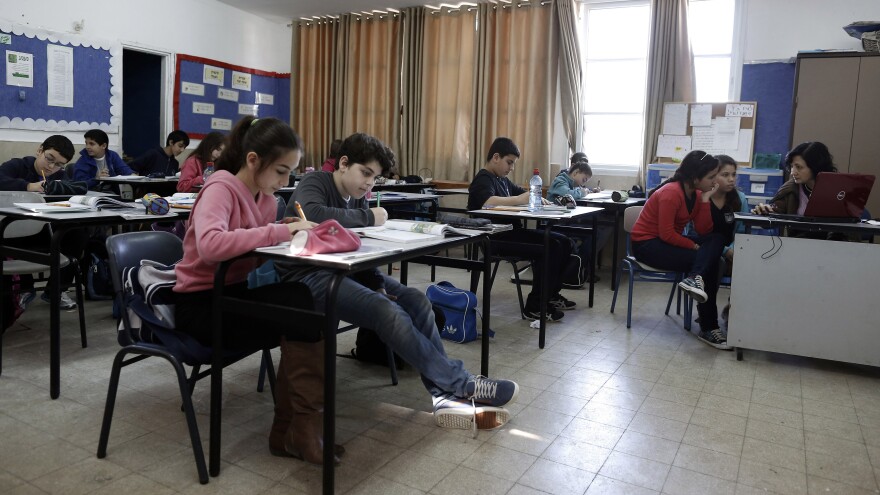There was some good news and bad news in a three-year study that tried to take an objective look at bias in Israeli and Palestinian textbooks directed against "the other."
The bad news isn't surprising: Each side depicts the other as "the enemy" and presents its own culture in positive terms. Both sides teach their children little about the other's religion, culture or economy. Strikingly, most maps in Israeli textbooks make little reference to the West Bank or the Gaza Strip, and Palestinian maps often ignore the existence of Israel.
The good news? Well, there are few dehumanizing references in the textbooks of either side. The research team found few if any references to the other culture as "subhuman," something they said is common in other tense situations.
The study was funded by the U.S. State Department and carried out by the Council of Religious Institutions of the Holy Land, an interfaith group that tries to promote religious understanding and tolerance in the region. The researchers included scholars from both sides and from outside the region.
The goal was to provide a grounding for future understanding, but the initial reaction showed how difficult progress will be.
The Israeli Ministry of Education condemned the report as "unprofessional" and "profoundly unobjective." The ministry offered this assessment even though the Israeli texts came off slightly better than those in Palestinian schools, or for that matter in ultra-Orthodox Jewish schools.
At the Jerusalem press conference where the study was released, the question and answer session broke down into a verbal duel, as people from Arab and Jewish communities heatedly recounted anecdotes from their own childhood, insisting the other side really was worse than the study indicates.
Here are some examples cited in "Victims of Our Own Narratives? Portrayal of the 'Other' in Israeli and Palestinian School Books."
From an Israeli state school text:
"Ever since 1964, the year the PLO was founded, Palestinian terrorist gangs penetrated (into Israel)... The PLO took advantage of the military defeat of Arab countries to increase its terrorist activity against Israel." (National World — Building a State in the Middle East, Grade 10, Part 2, Page186)
From a text used in a state-supported ultra-Orthodox religious school:
"Israel is a young country and surrounded by enemies: Syria, Egypt, Jordan. And on every side [...] enemy states are hatching plots that are only waiting for the right time to be carried out. Like a little lamb in a sea of seventy wolves is Israel among the Arab states, which, ever since she was established to this day have not come to terms with the fact of her existence even after they have threatened to destroy all the inhabitants..." (Country and Its Inhabitants: Israel Studies, Grade 4, Part 3, Page118)
From a Palestinian textbook:
"The conference reaffirmed again that the Zionist occupation and its usurpation of Palestine and its people's rights comprise the core of the conflict in the Middle East." (History of the Arabs and the World: in the Twentieth Century, Grade 12, Page 74)
Copyright 2021 NPR. To see more, visit https://www.npr.org.



